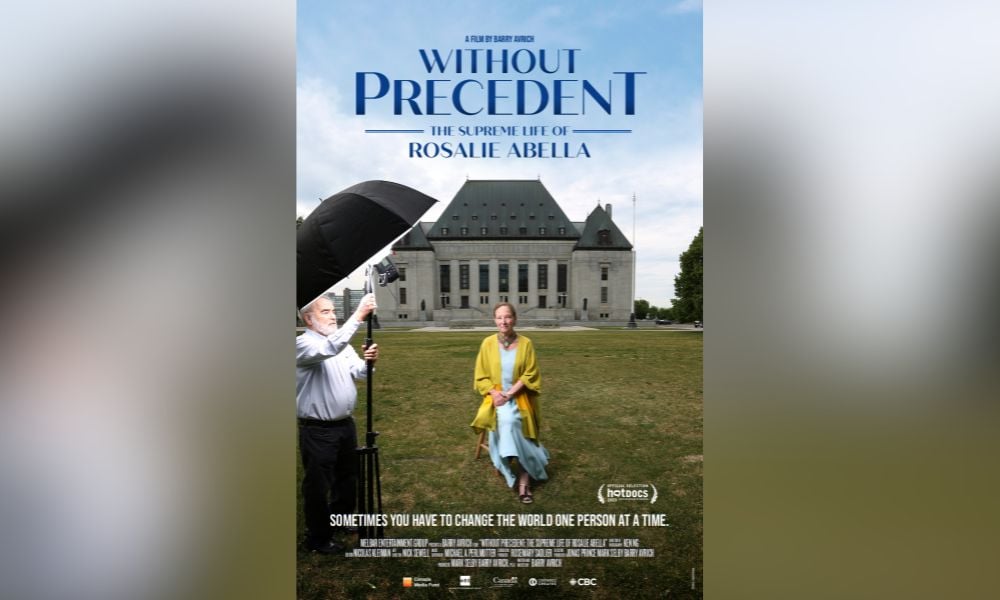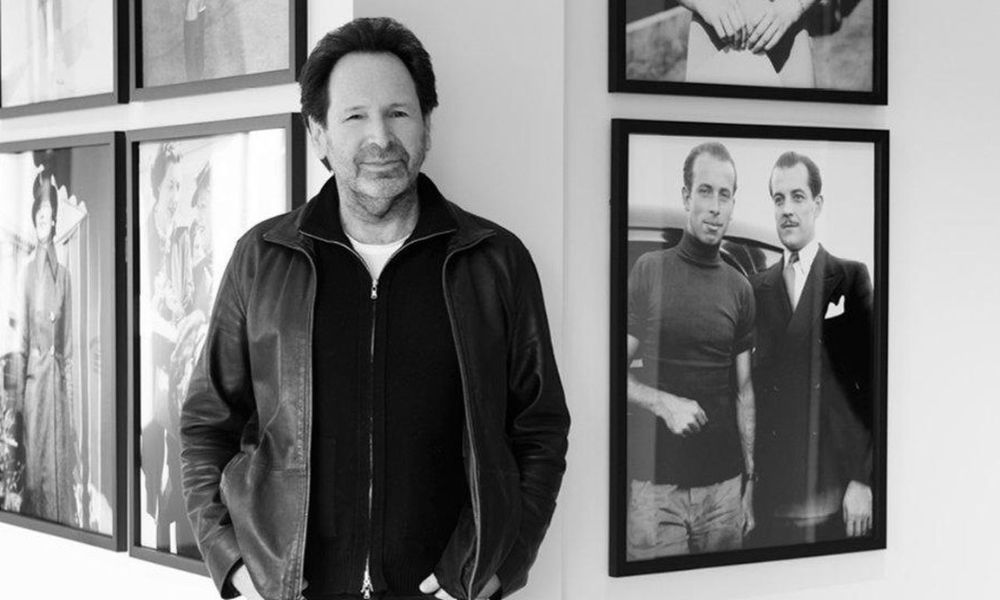Director Barry Avrich presents the human side of Abella, a love story and high-profile interviews

A new documentary screening at the Hot Docs festival tonight chronicles the life of Supreme Court Justice Rosie Abella, the first Jewish woman and refugee to sit on the top court bench.
“Abella is one of those extraordinary Canadian rock stars, not only in the legal profession but in so many areas, that I just felt it was a story that needed to be told,” says Barry Avrich, who wrote and directed Without Precedent: The Supreme Life of Rosalie Abella.
“As a Canadian filmmaker who's made nearly 60 films, I've never believed that Canadians are great about promoting themselves … She's influenced so many courts internationally, and lawyers and law students,” he says.
Avrich says he initially interviewed Abella for his film Prosecuting Evil: The Extraordinary World of Ben Ferencz, which profiled the last surviving Nuremberg trial prosecutor.
“She had about two years to go on the bench, and we just started talking about the idea of a documentary about her life. She's very self-deprecating, and her classic go-to line is ‘Who would be interested?’”
Avrich says his film is ultimately a love story between Abella and her husband, Irving Abella. He and the couple’s two children are interviewed extensively in the movie.
They began shooting the film during the height of COVID and were able to film Abella during her final days on the bench in her office at the SCC and three other times.

Barry Avrich (Photo by Wade Hudson)
“What I really wanted to come across in this film is not purely Rosalie Abella,” says Avrich. “If you look at the poster for the film, Irving is in it holding a light over her as they're doing a photo shoot outside the building. It is this incredible love story of two academics, two activists, and two people that just cared about other people more than themselves.”
The film also includes footage of Abella reflecting on her marriage after her husband died.
“I felt it was really important to film her again, in terms of what that loss meant to her,” says Avrich.
“Because I'm not a lawyer, my approach to it would be Abella the human being, not necessarily the majesty and pedigree of the bench and her career, it's all in the film, but who she is as a human being, which is so beautifully accessible, and rich.”
The film includes interviews with Margaret Atwood, prime ministers Brian Mulroney, Paul Martin and Joe Clark, writer Adam Gopnik and current Supreme Court of Canada Justice Andromache Karakatsanis.
It also includes an interview with Gerald Chan, recently elected as a bencher in the Law Society of Ontario elections. Chant received the most number of vote of any candidate.
The film also does not shy away from controversies surrounding Abella, including her push for employment equity as sole commissioner of the federal Royal Commission on Equality in Employment.
“I wanted the film to have balance, and there are people in the film, archivally, who might talk about some of the challenges that she had and challenges that they had with her.”
Brian Mulroney recounts in the film the resistance he received for appointing her to the Ontario Court of Appeal in 1992. Abella was later appointed to the SCC by Prime Minister Paul Martin.
“She generally knew when she was ruling that there was going to be some kind of trouble and that she wasn't going to be popular,” says Avrich. “I give credit to her, and certainly some of the politicians at the time that bucked the trend and said, ‘Okay, we're bringing in somebody that's just not going to sit there and go with the trend,’ that she would stir things up.”
Avrich says music was a significant part of the filmmaking, which would always be playing when he visited Abella. The film opens with Rhapsody in Blue by George Gershwin.
Avrich says Abella also shared hundreds of VHS home movies with the film crew. Footage from the old films is interspersed throughout the documentary to tell the story of Abella’s childhood as a first-generation immigrant and Holocaust survivor.
After its world premiere at the Hot Docs Film Festival, the movie will have a theatrical run in Canada and be broadcasted on CBC in the fall.
Then, it will play film festivals worldwide. “We're getting invitations from film festivals all over the world for the film, which says something about her life,” says Avrich.
Avrich was also an executive producer on the film, along with Jonas Prince and Mark Selby. The production company is Melbar Entertainment Group.










